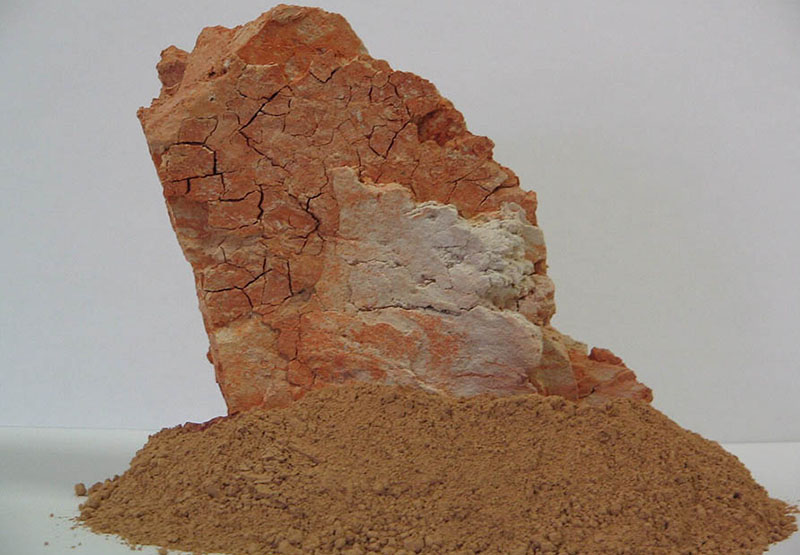What is Tripoli:
Tripoli is a cream-colored natural mineral unique in the world whose main use is for the production of polishing pastes and refractory insulators. It is extracted naturally and exclusively throughout the world from mines near our company.
Chemical Composition:It consists of crystalline silicic acid, without quartz or quartzite, featuring doubly brittle crystals. Geologically, it is a silica SiO2, derived from either the decomposition or alteration of high-silica limestone or direct deposition of colloidal silica, resulting from alkaline salts decomposition. In its amorphous silica form, it comprises primary crystals less than 4 microns in hardness 7 (Mohs scale), forming porous clusters. Its structure resembles Pumice Stone.
Applications:
Primarily employed as an abrasive in polishing pastes for soft or non-ferrous metals (aluminum, copper, bronze, brass, aluminum…) and plastics. This encompasses polishing faucets, door handles, lamps, aluminum profiles, polyester, epoxy, and other materials. Furthermore, due to its lightweight properties, when appropriately processed, ground, and sorted, it acts as a constituent in lightweight and insulating refractory concretes, providing exceptional thermal insulation. It is also utilized to a lesser extent as a thickening and/or coloring agent in paints and in the production of frits.
Why Choose Our Tripoli:
Unlike other similar products, our Tripoli stands out for the following reasons:
- The excellence of the natural product itself.
- Careful control in its manufacturing.
- Thorough control of the finished product verified by analyses/MT output from our factory.
- In polishing, using our Tripoli as a base makes pastes more efficient. Its consistent quality is evident in perfect uniformity of its characteristics: oil absorption, Pe, color, abrasive power…
As an insulator, its quality-price ratio leaves no better substitute
How it Works in Polishing:
Due to its oil absorption, 40-45%, the agglomerated grains of Tripoli adhere well to the polishing disc and provide stability to liquid compositions. Upon contact with metal, the microcrystal agglomerates fracture partially or entirely, generating grains smaller than 2.5 microns, responsible for achieving a uniform polish on the surface.
For additional information, please contact us.
Insulating Properties
After successful testing in our laboratory and knowing that Tripoli is primarily composed of amorphous and porous crystalline silica, its grain consists of agglomerates formed by microcrystals (2 – 5 microns) that, when bonded together, create a porous particle, serving effectively as an excellent insulator.
For additional information, please contact us.


